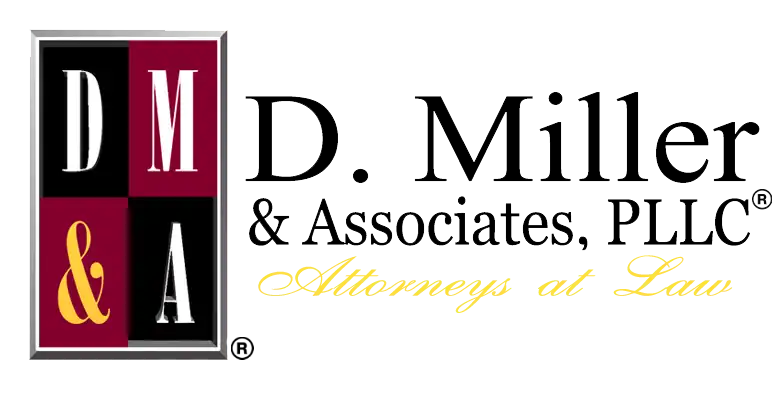According to the Centers for Disease Control and Prevention (CDC), 29.4 million people visit the emergency room each year for accidents or unintended injuries.
Sometimes, accidents just happen. But when they occur as the result of another person’s negligence or recklessness, the victim may qualify to seek financial compensation for their physical, mental, and emotional injuries. If you suffered injuries or lost a loved one because of someone else’s failure to exercise reasonable caution, a Bay City personal injury lawyer can help. Contact D. Miller & Associates, PLLC™ today at (713) 850-8600, and our legal team can discuss your options with you.
Types of Personal Injury Cases
Personal injury law involves the management of torts, which the Legal Information Institute (LII) defines as an act or omission that causes the injury or harm of another person for which courts can hold the offender liable. In simpler language, this means that a person who suffers harm because of someone else can hold them responsible for their actions in court.
Personal injury involves civil cases, not criminal cases. When victims hold the at-fault party accountable in a civil court, they do not face criminal charges. Instead, civil court allows the victim to pursue financial compensation for the losses that resulted from their injury. However, a person deemed responsible for injuries in a civil court may also face charges in a criminal court and vice versa.
Common types of personal injury cases include:
- Workplace accidents
- Car, truck, motorcycle, pedestrian, or bicycle accidents
- Slip and falls
- Product defects
- Dog bites
- Medical malpractice
If you have questions about the process of filing a claim, a Bay City personal injury lawyer can help. Contact D. Miller & Associates, PLLC™ at (713) 850-8600 today, and a member of our legal team can discuss the details of your unique case.
Financial Compensation for Personal Injury Cases
The types and amounts of financial recovery you may receive vary based on many factors, such as the severity of your injuries, whether or not you receive an insurance settlement, and the losses you suffered. In personal injury cases, victims may qualify for economic damages, which refer to measurable losses that the court can calculate, noneconomic damages for their physical, mental, and emotional pain, or both. Financial recovery may include payment for:
- Emergency medical treatment, rehabilitation expenses, and ongoing healthcare costs
- The cost of hiring household help if your injuries prevent you from doing routine tasks
- Lost wages for the time you missed at work
- Loss of future wages if you cannot return to work or if you lost a loved one who provided for you and your family
- Property damage for vehicles and other personal belongings destroyed in an accident
- Pain and suffering, such as mental anguish for the trauma you suffered as a result of your injury
- Loss of consortium, also known as loss of companionship, for the trauma of losing a spouse
- Funeral and burial expenses
A Bay City personal injury lawyer can help you evaluate your damages and pursue financial compensation for your losses.
The Statute of Limitations on Personal Injury Cases
Each state has its own statute of limitations on personal injury cases, which set a time frame on the amount of time a victim has to file their claim. If they fail to meet this deadline, the court will not consider their request.
In Texas, individuals who suffer injuries resulting from another person’s negligent behavior generally have up to two years from the date of the incident to file a claim against the liable party. If the victim lost their life due to injuries sustained in the incident, the family of the victim generally has two years from the date of their loved one’s passing to file a wrongful death claim.
Liability in a Personal Injury Case
In order to seek financial recovery in a personal injury case, the victim or their attorney must prove the liability of the party responsible for causing the injury. Regardless of the type of personal injury case, they must do this by demonstrating that:
- The person had a responsibility to act in a manner that would prevent injury to the victim.
- The person breached this responsibility through omission or reckless act.
- That breach of responsibility caused the victim to suffer harm.
- The victim suffered financial losses as a result of their injury.
In addition to individuals, victims can hold businesses and organizations accountable in a personal injury case, as well.
An Individual or Organization
Most personal injury cases involve the negligence or unlawful act of an individual, but in some cases, the victim may file suit against an organization, such as a:
- School
- Workplace
- Church
- Retail chain
- Nursing home
- Property management company
A Product Manufacturer
In instances in which a person suffers harm as the result of a defective product, the victim may qualify for financial compensation in a products liability case. This type of personal injury claim holds the manufacturer, distributor, or retailer responsible for putting a faulty product onto the consumer market.
A Government Agency
While sovereign immunity often protects the United States government against lawsuits brought forth by private citizens, the Federal Tort Claims Act (FTCA) does allow victims to file personal injury claims against government agencies in certain cases. These types of cases typically involve much shorter statutes of limitations than other personal injury claims, and victims may find pursuing them on their own challenging. A personal injury lawyer can help you determine if you can file a claim against the government for your losses.
Call D. Miller & Associates, PLLC™ Today to Get Started
Personal injury cases often affect many aspects of a victim’s life, especially if they suffer from long-term effects or lost a family member. If you or a loved one suffered serious or fatal injuries due to another person’s failure to act with reasonable care, you do not have to navigate the legal process on your own. The lawyers at D. Miller & Associates, PLLC™ can manage your case on your behalf so you have time to focus on your road to recovery. Call us today at (713) 850-8600 to discuss your case with our legal team.

